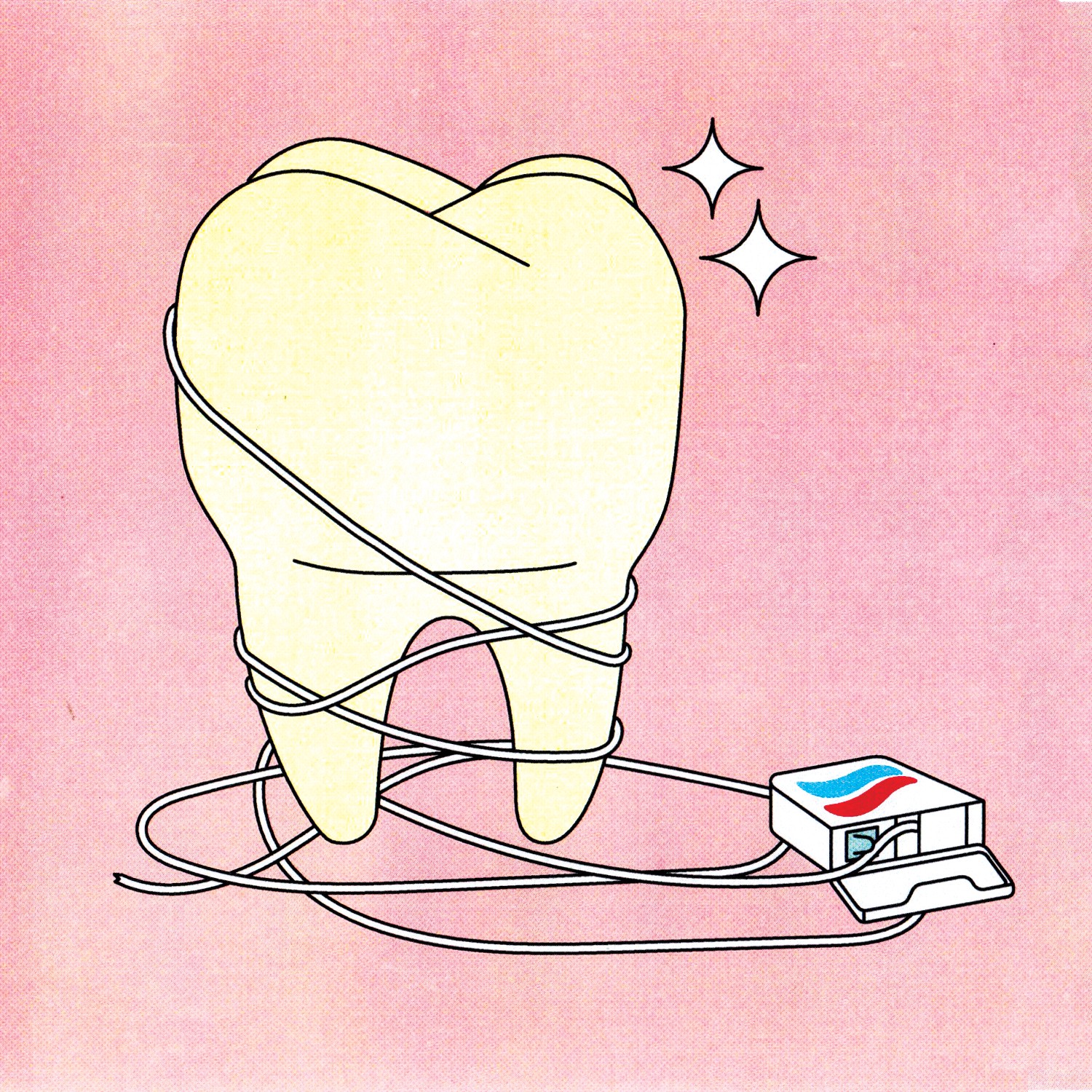The research is weak and misleading, yet dentists are adamant. So where does that leave us?
 Illustrations: George Wylesol
Illustrations: George Wylesol

What does it all mean?
So is the advice to keep on flossing, full stop? If only the world were so simple.
Nightly flossing ? done right ? is probably the best way to remove plaque and reduce gingivitis. But, as already discussed, it?s challenging and onerous. Fortunately, there are alternatives that aren?t as technique-sensitive and that many people find less burdensome. Water flossers, better known by the brand name ?Waterpik,? come with a small wand (much like a tiny electric toothbrush) that squirts a fine, powerful jet of water between teeth. Interdental brushes, which resemble tiny cylindrical hairbrushes, can be inserted between teeth and pulled back and forth a few times.
Can they work as well as flossing? That?s a tricky question, depending on the person?s technique and their dental anatomy: People with larger gaps between the bases of their teeth are more likely to do well with interdental brushes, for example.
But that?s really the wrong question, insists Mariotti. The right question is which between-teeth cleaning tool can become a nightly habit? ?I start patients off with flossing, and if it doesn?t seem to be going well, I encourage them to try one of the other ways,? he says. ?The way I look at it is we need to personalize the approach to find the method that the patient will keep at.?
That view leads to some bottom-line advice when it comes to flossing: If you can get yourself to floss nightly, do it, and do the best job you can with it. Even if your technique falls short, you?ll get some benefit over not doing anything between your teeth. (The only possible downside: If you?re too heavy-handed about it, you can cut your gums, which can increase inflammation and the risk of infection for as long as a few weeks.) If nightly flossing isn?t working out for you, try water flossers or interdental brushes. ?By using either of those other approaches, you can get a several-fold improvement in plaque removal over brushing alone,? says Kotsakis.
Studies be damned, the collective wisdom of dentistry is clear: Keep up the flossing, or something that can stand in for it.


